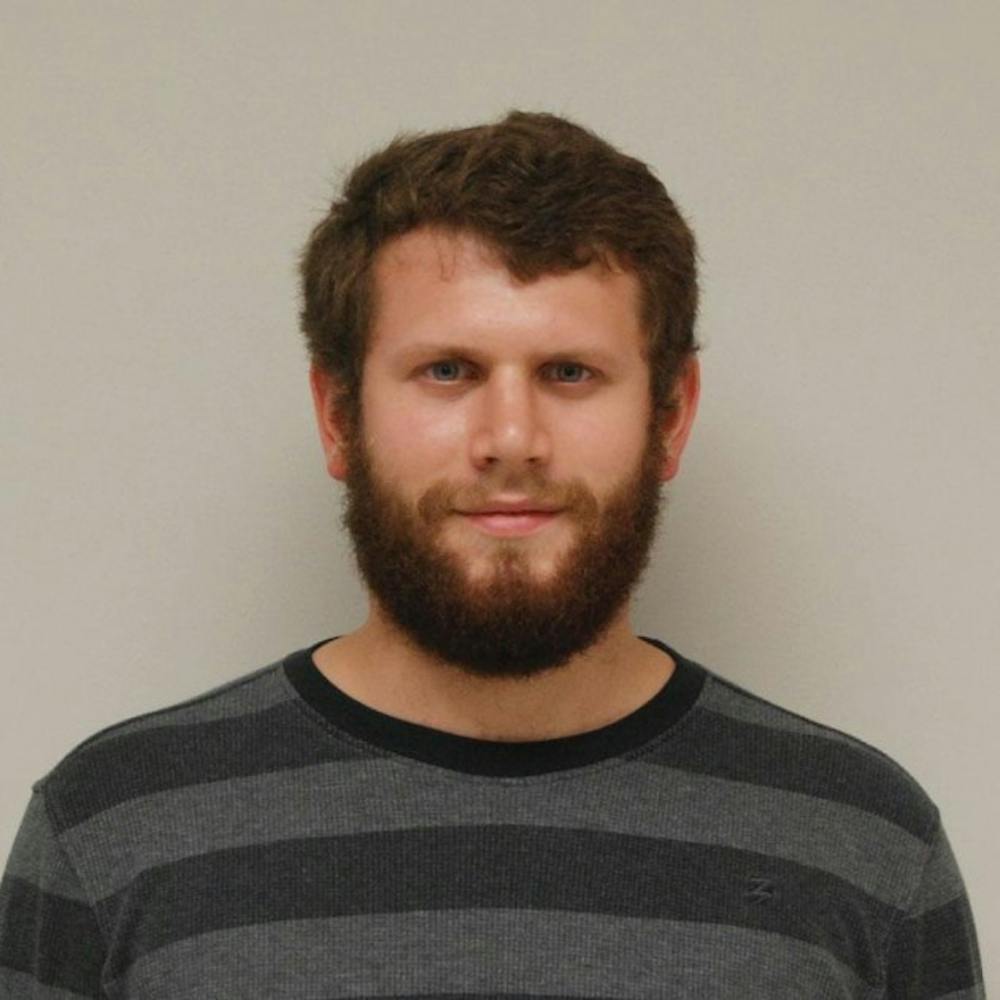I was asked on Tuesday (April 24) to cover New York's Republican Primary elections here at UB (which, as it turns out, is its own district, at least when it comes to the Republican Primaries, evidently). The brief hard news article that I was supposed to write was never written, however.
Why?
Just one person voted, that's why. (Plus two affidavit votes.)
And because writing a 2,500-character treatment of an event next to no one participated in (literally!) seemed rather silly, I decided to parley the interviews and research I did into this column. The fact I really like writing columns also played into this decision, it should be noted.
On a more serious note, though, pretty much everything wrong with the American electoral process manifest itself to me throughout the course of my journalistic endeavors on Tuesday. For 15 uneventful hours, Student Union 145B was a microcosm of everything that needs to change if American politics is going to stop being the bizarre, frightening laughingstock that it is.
First, let's start with some numbers. UB has a little over 19,000 undergraduate students, a little under 10,000 graduate and professional students, and about 2,600 academic staff members. As an interesting historical point of comparison, the number of people on UB's campus on a weekday during the academic year is comparable to the number of full male Athenian citizens at the height of Athens' power before the Peloponnesian War. (Why, yes, I am in a Greek history class this semester.)
The number of people in this polis-sized campus who are actually registered to vote in its district? Fifteen.
"How many people are on this campus? I should think there'd be more than 15," said Charlie Missana, the chairperson of the district polls, taking the words right out of my mouth.
Of course, there are a number of mitigating factors to consider here. Most UB students and faculty are registered through their home district (myself included). Primaries, too, it should be noted, historically bring low turnouts.
"The turnout's usually, in a primary, very low to begin with," said Missana. "It's only 10 percent to begin with. So 10 percent of 15 is 1.5, so we're almost there!"
This doesn't begin to excuse the embarrassing lack of participation and registration, however - the Republican Primaries are hardly the only example of UB's legendary apathy. The SA elections only manage a 10 percent turnout each year, and that's with the candidates practically begging for votes all day when the polls are open. The less high-profile University Council Student Representative elections got a whopping 2 percent student turnout.
Seriously, UB, you can do better than this. I've seen the way you react to tattoo columns you don't like. Get mad (or at least involved) in something more important.
Don't think, however, that this is going to turn into an inane "Rock the Vote"-type column. Honestly, a big part of the reason no one votes is because our political system is hopelessly broken. When I asked Tim Van Oss of UB's College Republicans whether he thought his vote mattered, his response was telling:
"Absolutely not. Especially because I live in the city of Buffalo, because being a Republican here doesn't really count for much of anything."
Ignoring for a moment the fact the Republican Primaries are a foregone conclusion at this point, the staggered nature of the primaries inherently renders the ones held later much less important than those held first. Likewise, because of the way states' population is represented in Congress, the votes of people living in small states are actually worth more, proportionally speaking, than those in larger states. Throw the Electoral College into the mix, which pretty much renders your vote for president worthless unless you happen to live in Ohio or Florida, and it's not hard to see why voter turnout is so low.
Marsha Trosterud, another volunteer overseeing the polls (which, by the way, how sad is it that the volunteers outnumbered the number of people who voted?), made another good point:
"Students are probably more concerned about their finals than who's going to win."
This really got me thinking about the logistical hurdles or, more often, quotidian concerns that sometimes keep people from voting. Seriously, why are elections held in the middle of the workweek? Or, more to the point, why isn't Election Day (at least for the president) a civil holiday?
If you're going to throw out the argument that we have too many civil holidays as it is, or that Election Day is somehow not important enough to warrant a day off, consider the following proposition: we should get rid of Columbus Day. Columbus Day is without a doubt the most pointless and, I would argue, most offensive holiday deemed important enough to skip work for. 1) Columbus didn't discover the Americas, the Vikings did; 2) You can't really "discover" a continent with an indigenous human population that's thousands of years old, anyway; 3) Columbus maintained until his death that it was actually India he had "discovered," despite this not making sense to virtually everyone who was alive then, so he wasn't exactly competent; 4) Columbus definitely killed and pillaged a peaceful population, which is behavior that doesn't exactly warrant getting a holiday named after you.
To get off the topic of Columbus for a second, the fact that everyday concerns potentially stifle the voices of millions of people throughout the country is a sad proposition, and one our democracy should endeavor to change.
I've covered a lot in this column, and I could write a lot more on this topic. It's no secret the American political system is in a sorry state of affairs. But it doesn't have to be this way. I dare to dream of an America where, among other things, the turnout for a national election at a 33,000-strong college campus breaks into the double-digits.
Call me crazy.
Email: eabenoit@buffalo.edu





